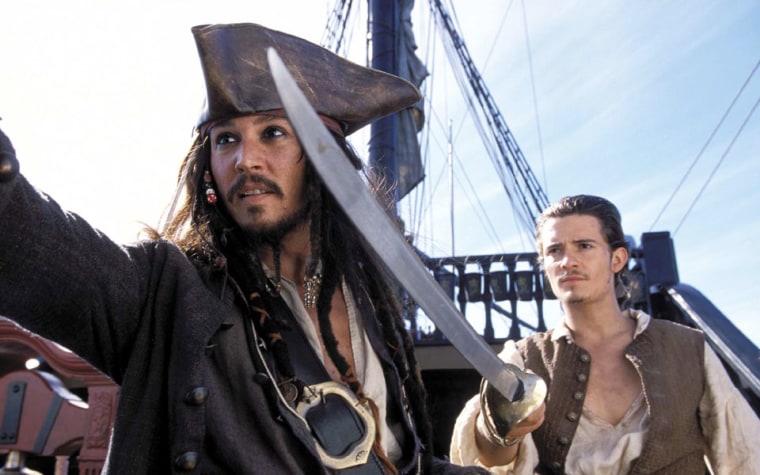There has been a sharp rise in the number of people killed at sea by pirates, this according to the (IMB) piracy reporting center in Malaysia. The IMB indicates that 30 mariners were murdered during the 325 known acts of piracy in 2004 - half of them in the waters off Nigeria. That figure made 2004 one of the bloodiest since the center started collecting statistics on piracy 15 years ago.
Kidnappings by pirates on the high seas have been a plague upon seafarers for centuries. In 1795, 115 American sailors were kidnapped by pirates in North Africa. To resolve this situation, the fledgling US Government was forced to pay a $1million dollar ransom, one-quarter of its national budget, to gain the release of the sailors.
Case in point, the Malacca Strait between Indonesia and Malaysia is one of the business shipping lanes in the world, a fact that has not been overlooked by modern day pirates. Almost 40 known acts of piracy were recorded in these waters last year, but such incidents almost disappeared after a deadly tsunami struck the entire area in December, possibly killing some of the pirates and/or destroying their boats, or else they had to lay low due to the presence of armed international military personnel in the area helping with relief efforts.
About a week ago two yachts were attacked by pirates firing automatic weapons and a running gun battle ensued between crew members and pirates. Last Saturday night approximately 35 heavily armed pirates, some carrying automatic weapons and rocket launchers, (noting other pirates still prefer to carry knifes or machetes), boarded an Indonesian owned oil tanker in the Malacca Strait and kidnapped the captain and a crew member. This was followed Monday night by pirates in this same area boarding a Japanese tugboat and kidnapping the ship's captain and two members of his crew.
Because many of these kidnapping situations involve a demand for ransom, ship owners and even governments have been forced to negotiate for the return of their employees or citizens, something the Japanese government is currently doing on behalf of the tugboat skipper and the other mariners. Not withstanding the national policy implications of the so-called Iran/Contra Affair, the US Government has a stated policy of not negotiating with "terrorists" for the release of kidnapped US citizens. This does not imply that the United States will not talk or discuss such matters; it simply means the US Government will not pay a ransom for the release of its citizens held by kidnapers. The political implications associated with international hostage taking and kidnappings have absorbed many a national leader and influenced the policies of a number of countries.
As nations and people begin to slowly recover from the devastating effects of the recent Asian tsunami, governments in those areas are anticipating that kidnappings by pirates will resume and perhaps even increase, to include the areas near South East Asia, the Far East, the Indian Subcontinent, around the coast of Africa, and along the coast of Central and South America, to include the waters surrounding the islands of the Caribbean.
If you have ever been on a cruise ship, you know that such vessels usually rely on their speed and sheer size, plus their occasional "prepare to repel boarders" drill conducted with fire hoses, to prevent another ship hijacking like that of the in 1985 off the coast of Egypt. During this act of international terrorism, family members of wheelchair-bound 69-year-old American Leon Klinghoffer were forced to watch as he was shot and killed, with his body then thrown overboard. World governments know the money that cruise ships and their guests bring to their shores, and provide very good protection to such living hotels when they are in port. Transport ships and oil tankers now use satellite tracking devices to alert their owners and law enforcement should such vessels go off course, and some even use 9,000 volt electric fences to keep pirates at bay, so to speak. Ship hijackings are crimes that more often than not go unpunished, again fueling the modern-day pirates to continue their criminal and murderous acts.
In the case of yesterday's kidnappings, Tokyo will probably ask other Asian governments to assist in their efforts to rescue the three seamen, while the kidnappers demand a ransom for their safe return. Many similar kidnappings are coordinated and conducted by an increasingly sophisticated criminal network, with middlemen arranging for ransoms to be paid into bank accounts. While negotiators attempt to arrange the release of the Japanese tugboat crew, how do we otherwise stop these hijacking, kidnapping, and knife-wielding murderers? We do it just like any other crime with its sinuous roots covered by money. We follow the money to the infrastructure and stop it at the bank.
There will always be more pirates, but the real moneymen are who we ultimately need to go after, while the police, the coast guard and the navies of the world continue to fight the good fight with the pirate ships and boats that fly the modern-day skull and crossbones.
Clint Van Zandt is an MSNBC analyst. He is the founder and president of Van Zandt Associates Inc. Dr. Van Zandt and his associates also developed , a website dedicated "to develop, evaluate, and disseminate information to help prepare and inform individuals concerning personal and family security issues." During his 25-year career in the FBI, Mr. Van Zandt was a supervisor in the FBI's internationally renowned Behavioral Science Unit at the FBI Academy in Quantico, Virginia. He was also the FBI's Chief Hostage Negotiator and in his current position, was the leader of the analytical team recognized with identifying the "Unabomber."
